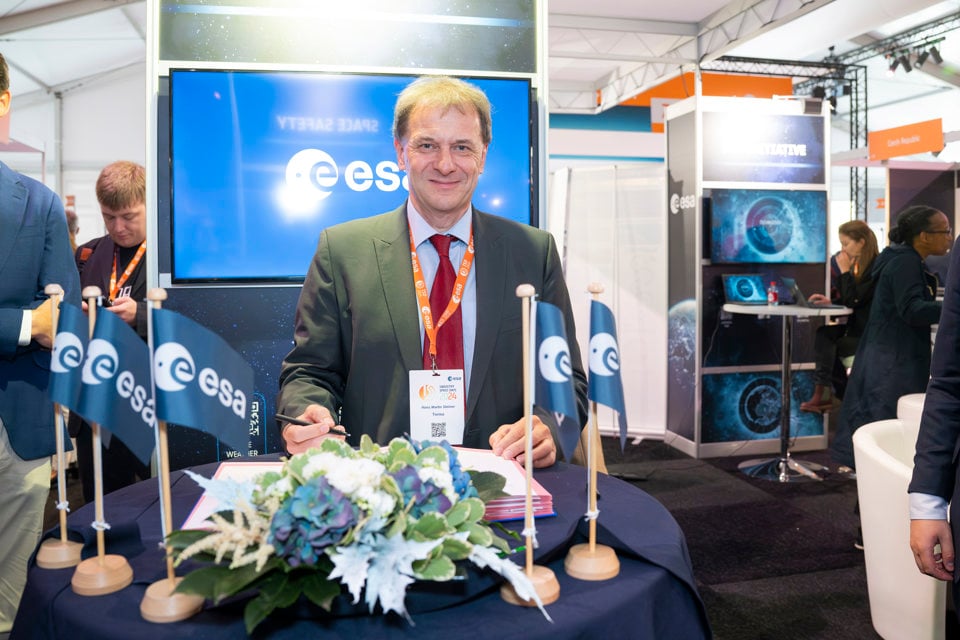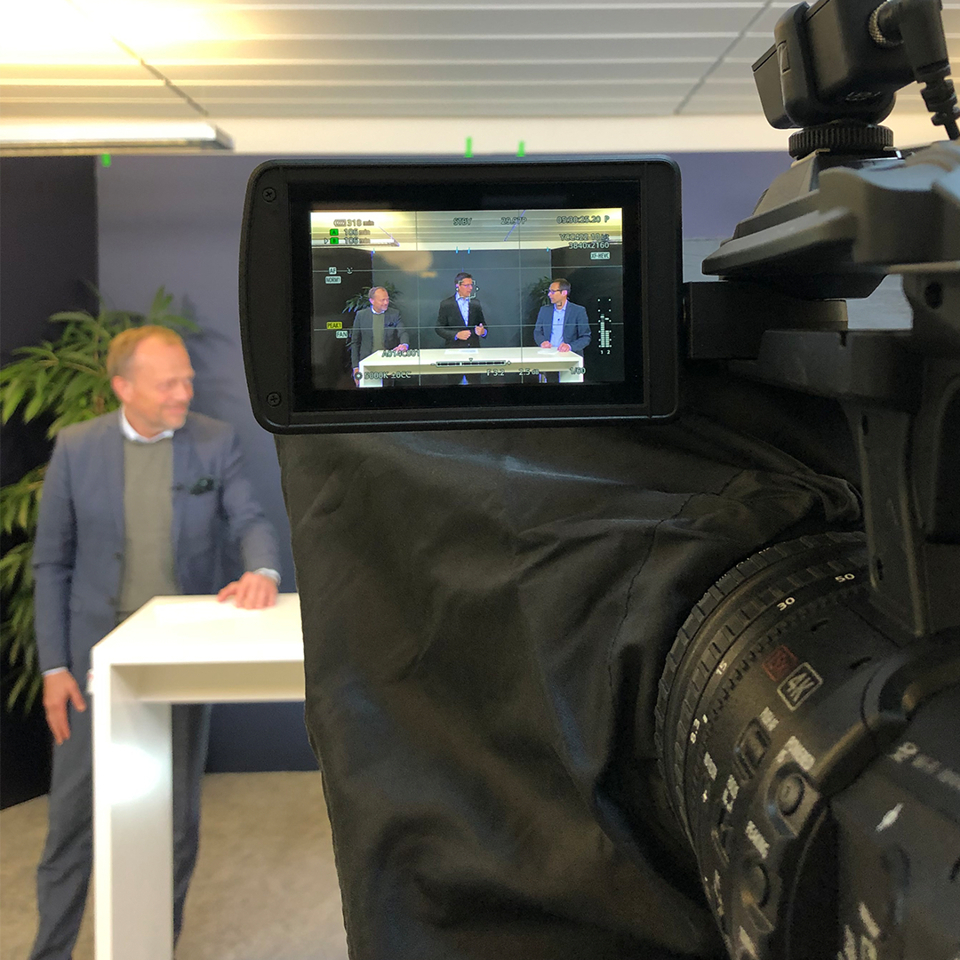2024-09-19
Terma joins the Zero Debris Charter Community
We are thrilled to announce that we have signed the Zero Debris Charter which collectively puts Europe at the forefront of sustainability on Earth and in space. The ESA-facilitated charter will drive the development of technologies required to become debris-neutral by 2030.

Satellites in orbit are used for space science, Earth observation, meteorology, climate research, telecommunication, navigation and much more. However, swirling fragments of past space endeavors are trapped in orbit around Earth, threatening our future in space. In fact, 130 million pieces of space debris larger than a millimeter orbit Earth, threatening satellites and space infrastructure now and in the future. Over time, the number and mass of these debris objects grow steadily, boosting the risk to active satellites.
In response to a call by its member states at the 2022 ESA ministerial meeting, ESA adopted a a “zero debris” approach for its missions, with the goal of becoming debris-neutral by 2030 and facilitated the development of the Zero Debris Charter to encourage similar endeavors in the community.
“The Zero Debris Charter signals Europe’s unwavering commitment to be a global leader on space debris mitigation and remediation, fostering collective action of a large community of space actors from all around the world,” said Quentin Verspieren, Space Safety Program Coordinator at ESA, in a statement.
Terma is committed to space sustainability
Hans Martin Steiner, VP Space Technology & Partnerships, Space, signs the charter on behalf of Terma.
“We are thrilled to sign the Charter. At Terma, we are dedicated to advancing space sustainability by minimizing debris risks associated with satellite operations and on-board equipment. By aligning with the Charter’s principles, we are taking a significant step towards a safer and more sustainable space environment for all,” says Hans Martin Steiner.
Terma is already committed to space sustainability. A prime example is our ProUST UniverSAS® system, which reflects our dedication to eco-friendly practices by minimizing production and operational resources like sending energy back to the grid, improving overall energy efficiency.
Terma is looking into creating a more sustainable future – in space and on Earth.
Photo Credit: Photos by Amsterdam Event Photography

Who we are
Terma in Brief
The Denmark based high-tech Terma Group develops products and systems for defense and non-defense security applications; including command and control systems, radar systems, self-protection systems for aircraft, space technology, and aerostructures for the aircraft industry.
Learn more about us



